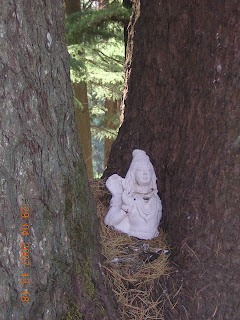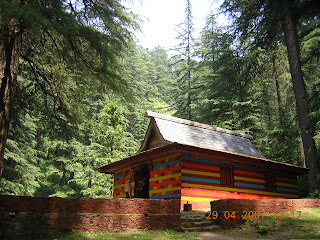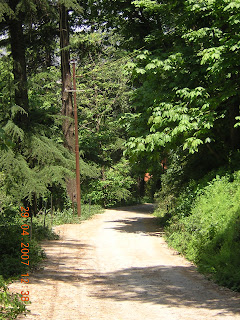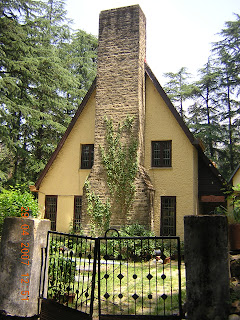Exploring the neighbourhood throws up interesting sights! Here's Shiva, nesting, as it were. It almost felt as though his divine consort, Parvati, had left him to hatch some divine eggs!

He, who is one of the triumvirate of Hindu divinities, namely, Brahma, Vishnu & Mahesh. The three represent one aspect each of the Divine: Brahma is the creator, Vishnu preserves & Mahesh, or Shiva, as he is popularly called, is responsible for destruction which, in turn, represents change. In his avataar as Rudra, Shiva is considered to be the destroyer of evil and sorrow. As Shankara, he is the doer of good. Interestingly, his name "Shiva" also means kind, friendly, gracious, or auspicious. Seems apposite, in a sense.
Back home, in Maharshtra, he is known as Khandoba in Jejuri.
And when you mention the word "Jejuri", you cannot go forth without mentioning at least one of Arun Kolatkar's poems from his book titled "Jejuri":
A SCRATCH
what is god
and what is stone
the dividing line
if it exists
is very thin
at jejuri
and every other stone
is god or his cousin
there is no crop
other than god
and god is harvested here
around the year
and round the clock
out of the bad earth
and the hard rock
that giant hunk of rock
the size of a bedroom
is khandoba's wife turned to stone
the crack that runs across
is the scar from his broadsword
he struck her down with
once in a fit of rage
scratch a rock
and a legend springs












